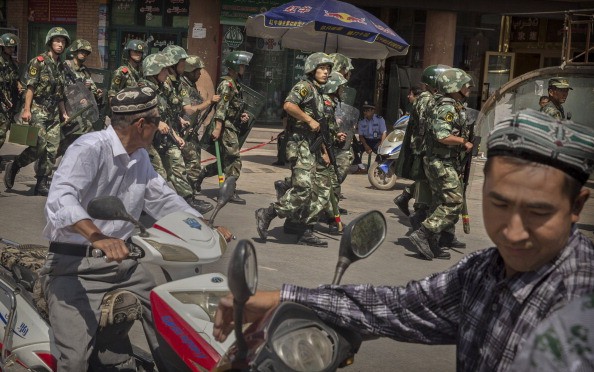A government official in northwest China has reportedly been demoted for his "timidity in fighting against religious extremism" after refusing to smoke in front of religious elders.
Jelil Matniyaz, a Communist Party chief of a village in the semi-autonomous, Muslim-majority Xinjiang Province, was demoted from "senior staff member" to "staff member" last month for "for being afraid to smoke in front of religious figures," according to the state-run Global Times newspaper.
Matniyaz, who was identified as a member of China's Uyghur Muslim ethnic minority, was also charged with having "infirm political stands."
"Smoking is a personal choice, and religious and ordinary people should respect each other, but the behavior of the demoted Chinese official 'not daring' to smoke conforms with extreme religious thought in Xinjiang," an anonymous government official told the Global Times.
"As a Party chief, he should lead the fight against extreme religious thought, otherwise, he would fail to confront the threat of extreme regional forces," the official said.
While smoking is not strictly forbidden amongst Muslims, local customs dictate that one should not smoke in front of older people and the religiously devout, said Turgunjun Tursun, a professor at the Zhejiang Normal University.
The Chinese government has been conducting a long-standing crackdown on religious extremism in Xinjiang, which is home a large number of Uyghur Muslims as well various ethnic and religious groups.
Last month, the provincial government enacted a new law that banned several types of behavior allegedly linked with "religious extremism," including wearing veils, having "abnormal" beards, refusing to watch state TV and preventing children from having a national education.
Nearly a hundred village officials were also named and shamed for various offenses in a probe personally directed by Chen Quanguo, Xinjiang's Communist Party secretary.
While China has defended these hard-line policies as necessary for maintaining peace and stability in the region, international observers have blamed them for fueling tensions and driving Uyghurs to extremist groups like the East Turkistan Islamic Movement (ETIM), which have been blamed for a series of violent attacks on the province in recent years.
The Uyghur ethnic group in Xinjiang wants greater autonomy from China but has been met with stiff opposition from the central government in Beijing.



























